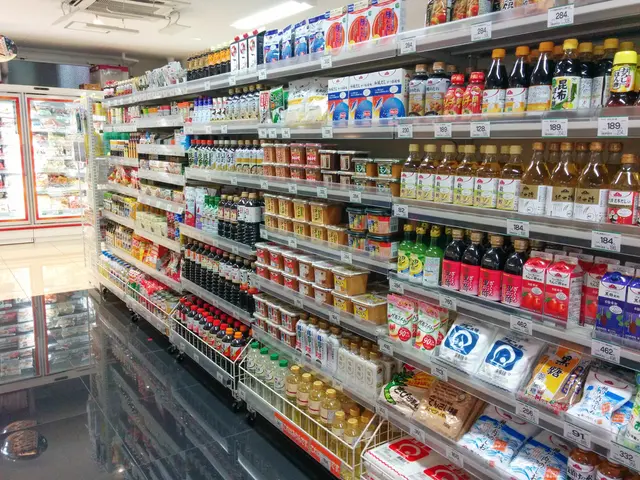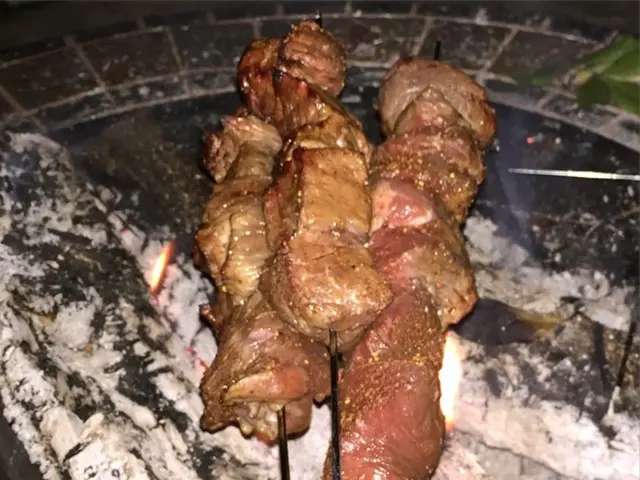Strategies for Adopting Self-Sustained Lifestyle and Minimizing Dependence on Grocery Stores, Summarized in 25 Practical Steps
Goin' full-on independence ain't for the faint-hearted or those who catch the vapors at the thought of a little dirt under their nails. But if you're sick of supermarkets' games, sky-high prices, and wondering where in the world your avocados have come from, here's a no-BS guide to set you on the path to self-sufficiency without convincing yourself you're a survivalist from the Florida swamps.
- Grow Your Own Kitchen Herbs (Even in Fightin' Cock County): Even the most city-slick of us can find room for herbs on a windowsill. Basil, thyme, and rosemary? Viva la revolution!
- Shop Local and Seasonal: Skip grocery stores and support your neighbors instead. Small farmers, markets, and local butcher shops can have better quality produce at cheaper prices.
- Learn to Cook the Ole Fashioned Way: Ditch the boxed mixes; they just ain't worth it! Homemade soups and desserts will change your life.
- Preserve Your Catch: Learn canning, dehydrating, fermenting, or freezing, to keep your bounty fresh for longer.
- Join a CSA (Community-Supported Agriculture): Regularly receive seasonal, local produce straight from the farm to your door. A more sustainable alternative to big-box grocers.
- Forage, For Real: Don't be scared of wild foods. Knowing what's safe to eat in the woods can save you a pretty penny when times are tough.
- Find Fresh Eggs (Raising chickens ain't mandatory): If you can't keep chooks, link up with a local farmer or someone rich in avians.
- Grow a Garden (Even in Pots): With the right climate, nearly any vegetable will grow. You don't need acreage for a few pots of lettuce or cherry tomatoes.
- Find a Local Milk Source (Raw or not): Supporting small dairies instead of factory farms can have a big impact on your taste buds and community.
- Make Your Own Bread (Or, At Least, Learn How): A simple loaf of homemade bread can make you feel like a boss. You won't miss that store-bought stuff when you taste the difference.
- Batch-Cook Your Way to Freedom: Cooking once and eating multiple times can free up your schedule (and wallet). Pop some meals in the freezer for those days when you're runnin' on empty.
- Brew Your Own Teas: Homemade teas can suit your taste and save your wallet. Grow or forage local herbs for a personalized blend.
- DIY Cheese, Yogurt, and Butter: Fresh dairy products are yummier and healthier. If you've got good milk, trying your hand at this can be easy and rewarding.
- Hunt or Fish (Or, Let a Friend Do the Fighting): If you're allowed in your area and if you're into that sorta thing, wild game and fish are tasty and free. If not, maybe barter with someone who knows how to handle a gun or rod.
- Make Your Own Cooking Fats: Rendering lard, tallow, or schmaltz is simple. Use it in place of factory-made seed oils for better health.
- Learn Basic Canning (Just 'Bout Jam or Pickles Suffices): Preserving fruits and veggies is practical and will come in handy when things go sideways at the local grocery store.
- Swap Paper Products for Reusables: Replace paper towels and disposable bags for durable, washable alternatives. Fewer trips to the store = more time for yourself.
- Make Your Own Candles and Salves: Keep yourself lit and feeling fresh with homemade beeswax and herbal remedy candles.
- Raise Meat Rabbits (If You've the Space and Stomach): Small spaces = lean, high-quality meat. Rabbit manure makes great fertilizer, too!
- Build a Pantry: Store seasonal or garden produce, grains, and canned goods for when supplies get scarce.
- Learn Basic Sewing: Repair or make clothing yourself to save money and reduce the impact on the environment.
- Build a Simple Root Cellar: Cool and dark storage spaces double the lifespan of certain produce. It ain't just for end-times preppers.
- Learn Herbal Remedies and First Aid: Basic knowledge of plants and health can help treat common ailments on your own without needing Dr. McGoogle.
- Make Fermented Foods: Sauerkraut, kimchi, or homemade vinegar = healthy gut and preserved food.
- Don't Go Overboard: Remember, self-sufficiency isn't about doing it all yourself. It's about finding a better balance and taking control of your life. You don't have to quit grocery shopping forever; just take it slow and start with what you've got.
Want more tips and guidance on self-sufficiency? Check out:
- 41 Pragmatic Ways to Live More Sustainably
- 10 Practical Skills for a More Self-Reliant Life
- Why True Self-Sufficiency Is a Myth (and What Actually Works)
Embracing self-sufficiency doesn't mean you have to abandon modern convenience or live off the grid. These strategies can help you take control of your life, become more sustainable, and support local communities.
- Explore Global Cuisines with a Sustainable Twist: Incorporate self-sufficiency principles into your favorite dishes to embrace a more eco-friendly cooking style.
- Embark on a Recipe Revolution: Start manuscripting your own cookbook filled with healthy, homemade, and locally-sourced recipes to share with others.
- Home-and-Garden projects like creating Herbal Salves and Candle-Making can offer DIY solutions to everyday needs, promoting sustainability.
- Delve into Food Preservation Techniques: By exploring Fermentation, Canning, and other preservation methods, you can ensure a steady food supply while minimizing waste.
- Immerse Yourself in Healthy Cooking: Learning about nutrition and making informed decisions can positively impact your health as well as the environment.
- Dabble in Urban Gourmet Gardening: Even a small, vertical garden or container herb planters can contribute to your self-sufficiency journey.
- Embrace the Spirit of Foraging: Practice identifying edible plants in your region to take advantage of Mother Nature's bounty and enhance your connection with the earth.
- Dive into the World of Home Brewing: Brew your own delicious, organic beers, wines, and kombucha to satisfy your taste buds while supporting sustainable living.
- Stock Your Kitchen with Essential Recipe Books: Mastering various cuisines can open up exciting avenues for self-sufficiency and promote lasting culinary skills.
- Transform Your Lifestyle: Implementing a self-sufficient mindset will help you become a more thoughtful consumer, promoting a healthier, more sustainable world for everyone.








